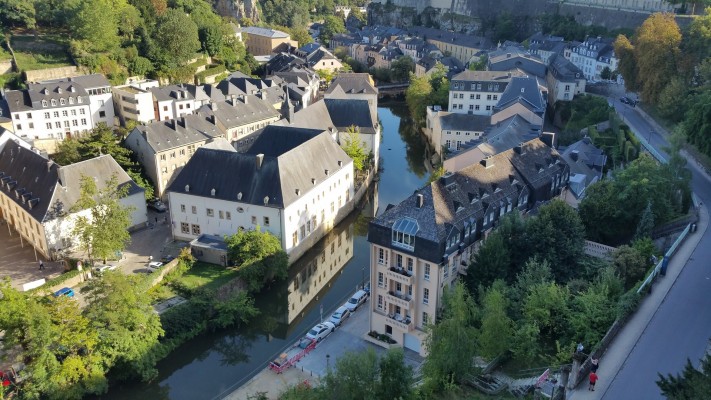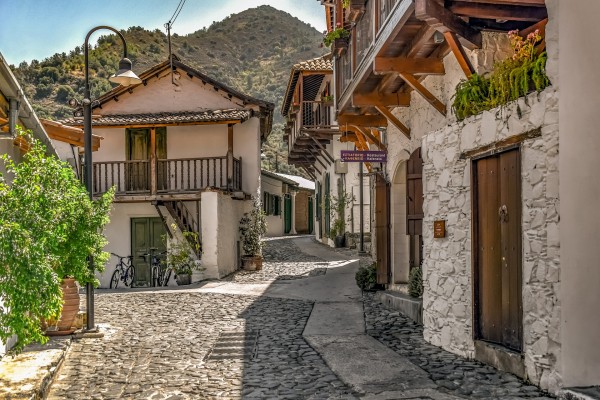The wealth, beauty and opportunities in Switzerland have been a source of attraction for expatriates, families and nature lovers who are making a choice to live in Switzerland. This has led to an increase in the demand for properties which have exceeded the supply of both long-term rental apartments and properties for sale in Switzerland for many years.
Considering all the requirements involved in buying a property in Switzerland, it is understandable that more the half (55.5%) of the people living in Switzerland choose long-term rental properties over buying any of the properties for sale in Switzerland. There is a high level of competition for long-term rental properties in Switzerland especially in the major cities such as Zurich, Geneva and Basel. Due to such high levels of demand, research shows that as at June 2018, only 0.2% of rental properties were available in Zurich. Similarly, in Geneva only 0.7% of properties were available for long-term rent at that specific time while Basel had about 0.9% and Lausanne had 0.8% of available rental properties.
Also, after several years of increasing property prices from the large number of people moving to this relatively small country, the recent drops in long-term rental prices in Switzerland may be contributing to the intense competition for affordable housing. Further, people tend to prefer long-term rental properties in Switzerland and may even live in the same apartment or house for up to 50 years. This is because of the difficulty involved in finding suitable accommodation as the application process is sometimes compared to applying for a job and also due to the fact that several long-term rental apartments in Switzerland have communal areas including car parks, playgrounds for children and other green spaces.
With the increasing use of online listing platforms and other internet-based property search engines, it is now much easier to find long-term rental properties in Switzerland. The location of the property is essential as it affects everything from the price of the property to the length of time it takes to actually secure the long-term rental in Switzerland. For instance, if the reason for moving to Switzerland is for a specific opportunity such as a job, then the long-term rental apartment would have to be located close to the job. This is one of the reasons why major cities are more populated and generally feature long-term rental apartments. Zurich is the most populated city in Switzerland with a relatively low supply of rental properties at a rate of about 3.3%, Basel has the highest supply rate of 6.0% with Lausanne following at 5.0%. Berne has a supply rate of 4.7% which is considerably higher than that of Geneva at 3.6%. With such limited numbers of houses available as long-term rental properties in Switzerland, the rental prices are generally higher in the cities than in the other areas. Further, people planning to live in Switzerland for one to two years tend to choose apartments over family houses as they are more readily available and typically located in the cities. For longer stays of 5 years or more, studies show that houses may be more sort after and families tend to live outside the cities.
Long-term rental property prices in Switzerland
According to the 2019 Property Market Switzerland report by Wūest Partner, there has been an increase of about 1.5% in the number of planning applications with a total amount of about CHF 12.3 billion allocated to the construction of rental apartments in Switzerland especially in the major cities. Further, recent trends show that higher income families and individuals are choosing to buy properties thereby leaving more long-term rental properties vacant. With this rise in the vacancy rate along with the increasing development of rental properties, it is expected that long-term rental prices would continue to drop by up to 1.9% in 2019. This changing market trend is also evident in the marketing of long-term rental properties as it now takes more than one month for a property to be taken off the market depending on the location of the property. In 2016, Zurich had the highest number of rental apartments at 186,900, Geneva had 84,400, while Basel had 78,700 rental apartments.
In 2019, the average asking price for rental apartments in Switzerland is about CHF 190 per square meter. However, the median asking rent prices in Geneva is the highest at CHF 370 per square meter closely followed by Zurich at CHF 3320 per square meter and then Lausanne at CHF 280 per square meter. Berne and Basel have a median asking rental price of CHF 240 and CHF 230 respectively. All these major cities cost so much more than the average rental price across Switzerland.
Generally, the average monthly rental cost of properties in Switzerland is about CHF 1,284. The homes typically have a living area of 99 sqm, allowing for an average of 44sqm living space per person. These costs do not reflect the prices of properties in the centre of larger cities as the monthly rental cost for a one bedroom apartment located in Geneva (city centre) would be around CHF 3,003 while larger family houses cost about CHF 5,832. For properties outside Geneva’s city centre, it is possible to get a one bedroom apartment for about CHF1,896 while family houses can be about CHF 3,318. In other cities like Bern, a one bedroom apartment in the city centre could be around CHF 1,214 while family homes are about CHF 2,363. Outside the city centre in Bern, there are one bedroom apartments for about CHF 851 and family homes costing CHF 1,711 monthly.
Getting a long-term rental property in Switzerland
Finding an apartment or property suitable for a long-term rental in Switzerland takes time and requires patience. In the Swiss rental market, tenants tend to move during the summer season usually between April and the beginning of July. Also, it is possible for long-term rental properties to become available at the end of each quarter in March, June, September and December as some regions follow the quarterly lease period. Most long-term rental searches start online, using top real estate listing websites and sometimes through newspaper publications. As the application process to secure a long-term rental apartment is quite detailed, real estate agents are usually in charge of the vetting process so as to choose the most suitable potential tenants.
After identifying long-term rental properties which suit your preferences, then the application process can commence. This process requires potential tenants to provide a well organised folder containing documents which would be given to the potential new landlord. These documents are essential as they serve as proof of financial capability, professional security and family or civil status. The dossier should contain the following information and corresponding documents:
-
A completed copy of the lease request form (either downloaded or gotten from the real estate agent), this is specific to each property;
-
Personal information including gender, age, profession, family and marital status;
-
Copies of official identification documents and proof of citizenship (a passport or national identity card);
-
Copies of a work permit, visa and residence permit as proof of legal right to live in Switzerland, this also shows the duration of the stay in the country;
-
Evidence of employment or confirmation of salary from a valid employer as the monthly rental costs should be about a quarter or a third of the monthly income;
-
A debt clearance statement from the canton stating that there are no outstanding debts, this statement is called the Extrait du registre des poursuites (in French) or the Auszug aus dem Betreibungsregister (in German) or Estratto del registro dell’Ufficio delle Esecuzioni e Fallimenti (in Italian);
-
Contact information including a current address, phone number and email address;
-
Other important details which are relevant to the living conditions in the property such as information about pets (number and type) or playing musical instruments (type of instruments, how often the instruments are played and for how long).
These documents and information above are required in any application for a long-term rental property in Switzerland. It is also advisable to include any other documents that can contribute to painting a more complete picture of the potential tenant such as references from employers or previous landlords.
Apply for only one property managed by each real estate agent as the agents may not consider the application seriously if they receive several of them for many different properties.
Budgeting for long-term rentals in Switzerland
An important element considered by real estate agents and potential landlords for any long-term rental property in Switzerland is the monthly income of the tenant. As a general rule, the income bracket of potential tenants for any specific long-term rental is a monthly income of about three or four times the rental costs, making it very important to choose properties within this range as some applications may be rejected if the monthly income is too high or too low. Also, if there are other members of the household who earn an income then the income range will be based on the combination of all the salaries.
With this in mind, major cities like Zurich and Geneva have much higher standards of living and rather expensive long-term rental properties, therefore, living in such cities would require a higher monthly income. Many families consider living in surrounding towns and cities to reduce the rental costs, general living costs and gain access to communities while benefiting from well situated international schools for their children.
Further, when considering a rental budget, it is essential to provide for other costs such as
-
Rental deposit – this is the one-off amount paid at the beginning of the rental period to secure the property. The charge can be between one to three months’ rent meaning that the initial payment for the long-term rental property can amount to about four times the monthly rent.
-
Agency fees – in cases where an agent is used to secure the accommodation, such real estate agents generally charge a fee for finding the property, preparing the contract and other administrative tasks.
-
Utilities and maintenance – are also very important costs as they are generally the responsibility of the tenant unless otherwise stated by the landlord or real estate agent. These costs usually include electricity, water, gas, internet as well as service charge for the maintenance of communal areas and shared facilities.
These are just the basic costs to include in a budget for a long-term rental property in Switzerland as there may be other miscellaneous costs which should also be provided for in the budget.
Tenancy agreement for long-term rentals in Switzerland
The Swiss tenancy law is based on the premise that tenants and landlords are able to freely decide the terms of their tenancy agreement as it suits both parties. However, the Swiss legislations provide some added steps to help protect the more vulnerable party which is usually the tenant. This section highlights the main steps, regulations and norms which are applicable when securing a long-term rental property in Switzerland.
Essentially, the tenancy agreement states that the tenant (lessee) and landlord (lessor) agree that the lessor chooses to surrender the specified property for use by the lessee who pays a fee (rent) to be able to use the property. This long-term lease agreement should include information about the rental costs, the duration of the tenancy period, the conditions for the termination of the rental agreement, a full inventory of the facilities available on the property, the rights and obligations of the tenant and the landlord as well as the general rules which apply on the property such as the quiet hours and provisions for pets.
Quiet hours in Switzerland are usually between 10pm and 6am daily, noon and 1pm daily as well as the entire day on Sundays. Tenants are expected to keep noise to a minimum during these times so as not to disturb other residents. In some properties, the restrictions could include using a lawn mower or power tools as well as playing music or even talking loudly.
Rules related to having pets are usually at the discretion of each landlord as they are not obligated to allow pets on the property. Tenants have to find out if the property they are requesting has such regulations about owning pets and what type of pets are allowed, for example some properties allow small caged animals including birds or fish while bigger animals like dogs and cats may not be allowed.
Increase in rental costs for a long-term lease in Switzerland
In this rental agreement, the parties can specify the rental amount as they choose. It is therefore within the rights of the lessee to contest this rental amount if it is considered improper. The lessee can choose to contest the initial rental amount, or an increase made to this rental amount. It is also possible for the lessee to file an application for the reduction of such rental tariff.
The main challenge in this process is identifying what would qualify as an improper rental tariff as the law does not clearly state an exact rental amount. It however provides two methods to help the lessee estimate the improper rental tariff which include: an absolute method where the rental tariff is considered on a specific day; or the relative method where a review of the rental amount is carried out considering the changes made from the last review and authorisation.
In practise, the rental tariff can be adjusted based on a few factors such as:
-
The standard reference interest rate which changes with the average mortgage interest rate applied by banks. As at March 2019, this standard reference interest rate remained at 1.5% and is valid in all the cantons across Switzerland.
-
A general increase in prices and cost which is usually referred to as inflation. The flat-rate of such inflation is typically between 0.5% and 1.0% per year.
-
Improvements and renovations made to the rented property. If the lessor makes significant improvements to the property which increase its value, then that may be sufficient reason to increase the rental amount in proportion to the new value of the long-term rental property in Switzerland.
At the initial stages of obtaining a long-term rental agreement, it may be difficult for the tenant to estimate if the rental amount is improper and as such the rental tariff is compared to the prevailing market prices for similar properties. This provides an estimate and serves as the foundation upon which future reviews for improper rental tariffs are conducted.
Terminating a long-term lease agreement in Switzerland
When a rental agreement is signed, both parties may choose to state a fixed or minimum duration for the long-term rental period, in this case, the tenancy agreement is automatically terminated at the end of the specified period without further action. However, in situations where the lessor or the lessee would like to end the tenancy agreement before the specified time, they have to follow the regulations for such cases. If the lessor (landlord) initiates such termination, then an official form would have to be provided but if the lessee (tenant) would like to end the lease agreement then they would have to do this in writing. There are further regulations which apply specifically to a family residence.
In Switzerland, the initial period for long-term rentals is usually 12 months which tend to end around the 25th of either March, June, September or December as they follow the quarter days. However, it is less likely for the December end date to be accepted, as the Christmas holiday usually affects this period. With these quarterly end dates, it is a rule of thumb that any notice to end a tenancy agreement should be given by the previous quarter date which implies a three-month notice.
Also, in cases where the rental agreement is entered into for an unlimited long-term rental period, then the parties must take steps to terminate the contract in order to end it. Some of the ways to end such a contract are through the ordinary termination where a notice of between 3 month and 6 months is given; or the extraordinary termination where the termination notice period is not observed. In an extraordinary termination, the guiding laws need to be followed otherwise such termination would be invalid.
Further, it is possible that when an extraordinary termination is initiated where the notice period is not observed, the tenant is expected to pay for the property for the entire duration of the contract or until the next possible termination date. However, this may be avoided if the tenant is able to find a suitable replacement willing to take up the lease agreement under the same terms. Generally, a long-term lease agreement in Switzerland can be terminated if the reason for such termination is legitimate and in good faith, otherwise, the court can consider the termination invalid.
The tenant may request to extend the lease agreement if another suitable accommodation would not have been found by the end of the long-term lease period. Such extension can be granted for a maximum period of 4 years if the property is a residential one while the long-term lease of a business property can be extended for up to 6 years.
Challenges with long-term lease in Switzerland
There may be times when the actual state of the long-term lease property is not in the condition agreed to by both parties when signing the long-term rental agreement and as such, the tenant may request that the damage or defect in the property be repaired. This request can be made when there is a major defect which was not caused by the tenant, for example, a leaking roof. The tenant may also be justified in requesting a reduction in the rental tariff to make up for the damages caused by such defect, if any.
Also, disputes may arise when considering incidental costs. Such incidental costs include electricity, maintenance, heating, water and other similar charges. Generally, the bill for such utilities are sent to the landlord who then charges the tenant the seemingly appropriate amount depending on usage of such facilities. This may be done in several ways such as payment of a fixed monthly amount by the tenant to cover such incidental charges or a monthly pro-rated charge as allocated by the landlord based on the estimated usage for the duration. These are some of the areas where there may be a disagreement between the landlord and the tenant, however, a clear payment policy should be stated in the tenancy agreement as a guiding principle for the duration of the long-term lease.
Sub-letting properties in Switzerland is legal and as such a number of properties can be rented as a sublet to third parties if approved by the lessor or landlord. Consequently, it is possible for the landlord to refuse the sublet agreement leading to some form of dispute.
Choosing a long-term rental property in Switzerland may be a quicker and much easier way to start life in the beautiful country but this decision should be taken after considering all the aspects discussed in this article.









